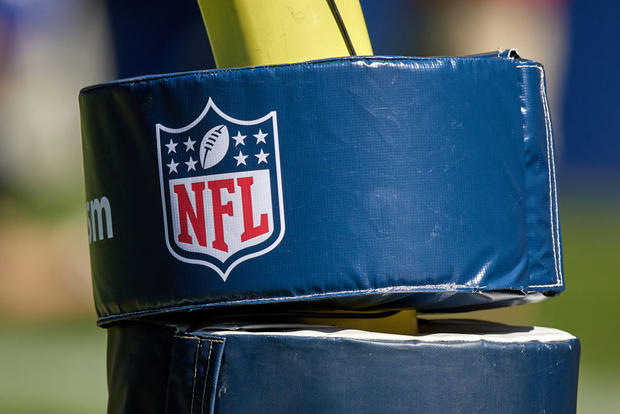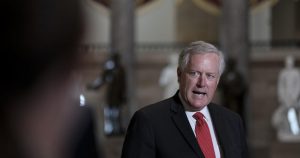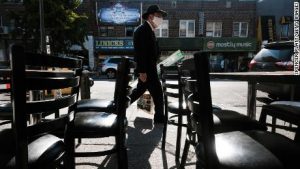U.S. billionaires gained almost $1 trillion in wealth during the pandemic
The nation’s 644 billionaires have enjoyed a staggering rise in wealth since the pandemic shuttered the economy in March, with the group gaining almost $1 trillion in total net worth, according to a new analysis. The spike in wealth coincides with what some economists are calling a K-shaped recovery, with the rich regaining their footing while poorer Americans struggle with lost wages and jobs.
The wealth of the nation’s billionaires rose to $3.88 trillion as of October 13, a jump of $931 billion from March, the analysis found. Total wealth for U.S. billionaires is also almost twice the $2.1 trillion in wealth held by the bottom half of the U.S. population, or about 165 million people, they added.
Amazon.com founder Jeff Bezos has enjoyed the biggest bump to his personal fortune, according to the analysis from Americans for Tax Fairness and the Institute for Policy Studies, two left-leaning groups. Bezos’ wealth has jumped by $90.1 billion to $203.1 billion from March 18 through October 13, bolstered by a rise in his company’s stock price as Americans turned en masse to Amazon and other e-commerce players for their consumer spending during the pandemic. Amazon.com shares reached a record of more than $3,500 a share in September.
New York updates list of restricted states
New York has added several states and territories to its travel restriction list as coronavirus cases continue to surge across the country, Governor Andrew Cuomo announced Tuesday. People who are traveling to New York from the restricted areas are required to quarantine for 14 days.
“We are now in a situation where 43 states meet the criteria for our travel advisory. This is really a bizarre outcome, considering New York once had the highest infection rate,” Cuomo said in a statement.
“There is no practical way to quarantine New York from Pennsylvania, New Jersey and Connecticut. There are just too many interchanges, interconnections, and people who live in one place and work in the other. It would have a disastrous effect on the economy, and remember while we’re fighting this public health pandemic we’re also fighting to open up the economy. However, to the extent travel between the states is not essential, it should be avoided.”
Here’s the updated list of restricted states and territories:
- Alaska, Alabama, Arkansas, Arizona, Colorado, Delaware, Florida, Georgia, Guam, Iowa, Idaho, Illinois, Indiana, Kansas, Kentucky, Louisiana, Maryland, Michigan, Minnesota, Missouri, Mississippi, Montana, North Carolina, North Dakota, Nebraska, New Mexico, Nevada, Ohio, Oklahoma, Puerto Rico, Rhode Island, South Carolina, South Dakota, Tennessee, Texas, Utah, Virginia, Wisconsin, West Virginia, Wyoming
British PM to impose highest level of restrictions on Manchester
British Prime Minister Boris Johnson says he’ll impose the highest level of coronavirus restrictions on the Greater Manchester region, after no deal was reached on a financial package.
Johnson says action was needed to protect the lives of Manchester’s residents and the region’s health care system. The Tier 3 measures mean pubs and businesses must close and people in England’s second-largest city are banned from socializing with other households.
Leaders of the Greater Manchester region have resisted the tough restrictions for days, saying local businesses forced to close would need more financial support from the government. Mayor Andy Burnham says he asked for an aid package, but the government walked away from the talks.
CDC now “strongly recommends” masks on public transit
The U.S. Centers for Disease Control and Prevention (CDC) issued new guidance on Monday saying it “strongly recommends appropriate masks be worn by all passengers and by all personnel” operating public transport across the country, including in stations, terminals and airports, to help slow spiraling coronavirus infections.
The Trump administration has thus far declined to issue any national mandate on face coverings, opting to leave such rules to state and local leaders to determine. The president himself has said he wears a mask “when needed,” but he’s disparaged other politicians and journalists for wearing masks, mocking one reporter during a White House news conference as “politically correct” for his decision not to remove his mask to ask a question.
Issuing its new “interim guidance” note on Monday, the CDC called masks “one of the most effective strategies available for reducing COVID-19 transmission,” and said well-fitted face coverings “are most likely to reduce the spread of COVID-19 when they are widely used by people in public settings. Wide use of masks especially helps protect those at higher risk of severe illness from COVID-19 as well as workers who frequently come into close contact with other people (e.g., in airports, seaports or other docks, bus terminals, and train stations).”
Massachusetts governor discusses vaccine distribution plan
Massachusetts Governor Charlie Baker said Tuesday the state is developing a plan to distribute a COVID-19 vaccine. The plan lays out the initial steps for a “robust, comprehensive and equitable” vaccine distribution system once one or more vaccines become available.
Officials anticipate limited supply in the early phase and plan to prioritize some health care workers, people at increased risk of severe illness from COVID-19 – including people with underlying medical conditions and those older than 65 – and other essential workers, Baker said.
“The plan also outlines our messaging efforts to make sure people know once there is a vaccine available, that it has been approved by the federal government and is safe and effective,” he said.
“We’ll also make it a priority to reach out specifically to groups that have been disproportionately impacted by COVID-19, including people and communities of color.”
Baker called it an interim plan “that will probably change as more information becomes available.”
Massachusetts is among the states that has recently seen an uptick in COVID-19 cases. As of mid-last week, a total of 63 communities in the state, including Boston, were considered high risk for virus infections, up from 40 a week before. The designation is based on average daily cases per 100,000 residents, CBS Boston reported.
8 NFL players test positive for COVID-19
The NFL announced Tuesday that 8 players and 11 new personnel tested positive for coronavirus between October 11 and October 17.
Through this testing period, the NFL administered 38,880 tests to players and team personnel, receiving 19 positive tests in total. In accordance with health and safety regulations, the NFL tests players and some personnel daily, while others are tested weekly. Those who have tested positive have been isolated and barred from team contact and access to facilities, but are in communication with club medical staff, the league and player’s union said in a joint statement.
The NFL did not say which teams or players had positive test results.
The NFL has not announced which teams contained positive tests or the names of players and personnel. Since August 1, 47 players have tested positive, along with 71 other personnel, although only several games have been postponed or rescheduled.
Melania Trump stays off campaign trail Tuesday, citing lingering cough
First Lady Melania Trump was scheduled to travel with President Trump to a campaign rally in Erie, Pennsylvania, Tuesday but is now staying home due to a lingering cough from her bout with COVID-19.
Her chief of staff, Stephanie Grisham, said the first lady continues to improve. Mrs. Trump has tested negative for the virus after contracting it along with the president and their son, Barron.
“Mrs. Trump continues to feel better every day following her recovery from COVID-19, but with a lingering cough, and out of an abundance of caution, she will not be traveling today,” Grisham said.
U.K. plans to infect healthy volunteers in new vaccine trial
U.K.-based researchers have planned a series of challenge vaccine trials in an attempt to speed up the production of a COVID-19 vaccine. The trials involve infecting healthy volunteers who have not exhibited symptoms of the virus, between the ages of 18-30, with a live version of the virus. These types of vaccine trials are uncommon because some consider them unethical.
The trials are a partnership between Imperial College London, the Department for Business, Energy and Industrial Strategy (BEIS), hVIVO, a company familiar with viral human challenge models, and the Royal Free London NHS Foundation Trust.
“Human challenge studies can increase our understanding of COVID-19 in unique ways and accelerate development of the many potential new COVID-19 treatments and vaccines,” lead researcher Dr. David Chui said in a statement.
“Our number one priority is the safety of the volunteers. My team has been safely running human challenge studies with other respiratory viruses for over 10 years. No study is completely risk free, but the Human Challenge Programme partners will be working hard to ensure we make the risks as low as we possibly can.”
The study will be reviewed by an ethics committee and regulators before volunteers are enrolled.
More than 220,000 have died in the U.S.
More than 220,400 people have died from coronavirus in America, according to data from Johns Hopkins University. The death toll comes amid a fall surge of virus cases across the nation. As of Tuesday, over 8.2 million people have been sickened by the virus in the U.S.
Surge in coronavirus cases puts strain on Wisconsin hospitals
Health experts are warning the months ahead will be some of the hardest of the coronavirus pandemic. It comes as the U.S. climbs towards a third peak, and nowhere is it more true than in Wisconsin, which has emerged as the country’s hot spot. The state is setting records for new cases, hospital admissions and deaths.
At UW Hospital in Madison, COVID-19 hospitalizations have almost doubled since the start of October. Nurse Katie Lanoway said it happened almost overnight.
“I’m really frustrated. It is scary because you don’t want to take that home to people you care about,” Lanoway told CBS News. “We really need help here in the hospital from people outside, to start wearing the mask and staying away from people.”
One COVID-19 unit used to be limited to one hallway, which has about 10 patient rooms, and now they’ve had to expand to three hallways because of the surge.
Dr. Jeff Pothoff, UW Health’s chief quality officer, works on a medivac team that has airlifted several coronavirus patients. “They thought they were going to be OK, and then all of a sudden, they end up here. There’s some regret,” Pothoff said. “At that point, it’s too late. There isn’t a do-over.”



















